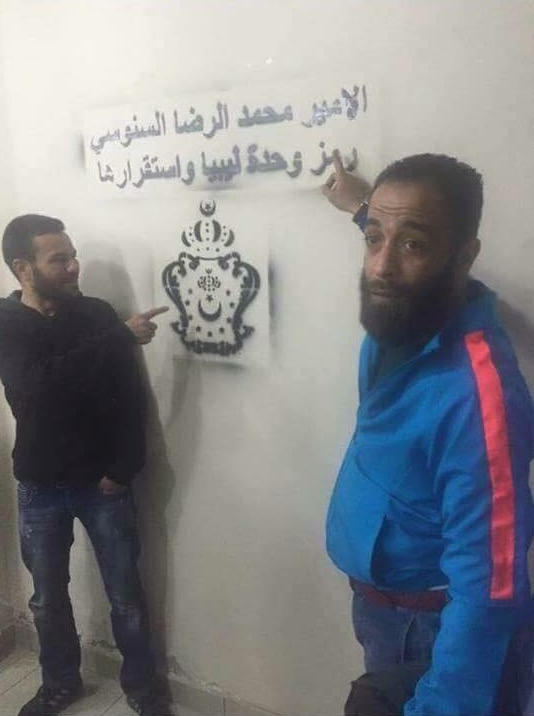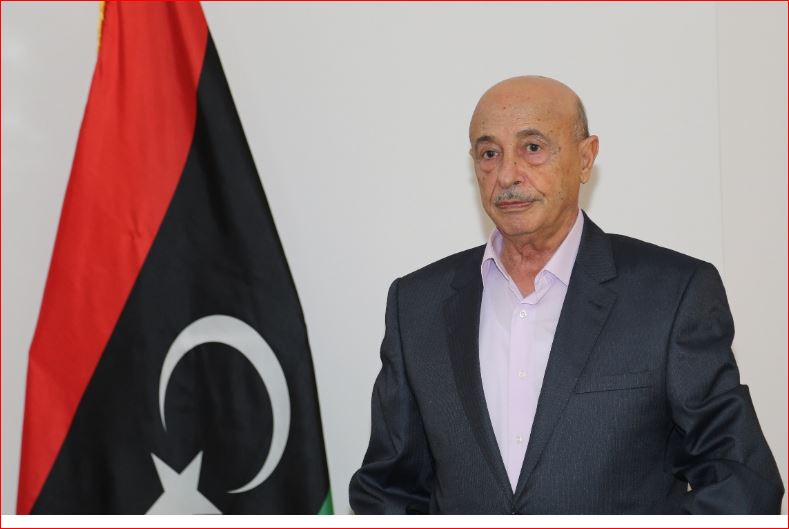By Libya Herald reporter.

Tripoli, 16 March 2016:
Tripoli militia leader Haithem Tajouri has come out of favour of a restoration of the . . .[restrict]Senussi monarchy as the solution to the Libyan crisis.
Tajouri, who yesterday took over Qaddafi’s Hall of the People at the entrance to the west Tripoli suburb of Hay Andalus, has now plastered it with posters calling for the return of the monarchy.
In recent days he has been threatening to prevent the UN-supported Presidency Council from operating in Tripoli unless it collaborates with him.
Support for the restoration of a constitutional monarchy has long been strong in places such as Tobruk and among tribes in Cyrenaica but has recently been growing in the west of the country. Supporters who come from both sides of the political divide – nationalists and Islamists alike – say that a return of the Senussis, not linked to any one town or tribe in Libya, presents the only workable solution to Libya’s divisions. They also claim that, were Libya to have an elected president, he could be a focus for national disunity.
“If someone from Misrata was elected president he wouldn’t be accepted by the Warfala; if a Wirshefani, he would not be accepted by Zawia and other places,” claimed one Tripoli monarchist supporter last week.
The move to bring back the Senussis falls into two camps. There are those who, like Tajouri, want to make Prince Mohamed Al-Rida, the great nephew of the late King Idris, king. There are also those who talk of having, more simply, a member of the Senussi family as interim head of state – not as king or president – again on the basis that the Senussis are in a unique position to act as a focus of unity in divided Libya. Several of the latter – they include a number of mayors – look to Prince Idris Al-Senussi, the son of King’s Idris’ cousin, to take on this role as a temporary measure.
In both cases, however, the aim is that whoever acts as head of state would exercise no day-to-day political power. His function would be to appoint a government and act as a symbol of national unity.
Many will see a delightful irony in the former Hall of the People, now the Hall of the Martyrs, being used as a campaign station for a restoration of the monarchy. It housed Qaddafi’s “parliament”, the General People’s Congress, and there was little more that Qaddafi hated (or feared) than the Senussis and the kingdom. He tried to wipe them from Libyan history, renaming everything that related to the period of the monarchy. [/restrict]









